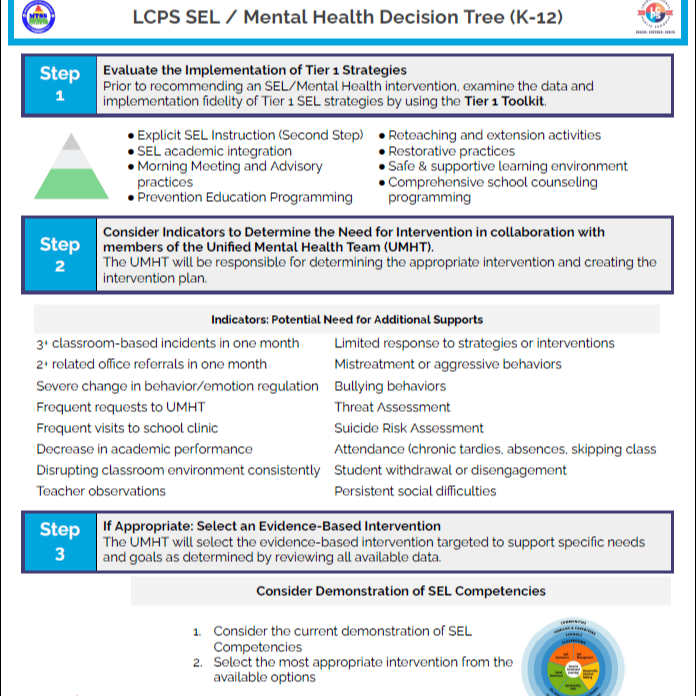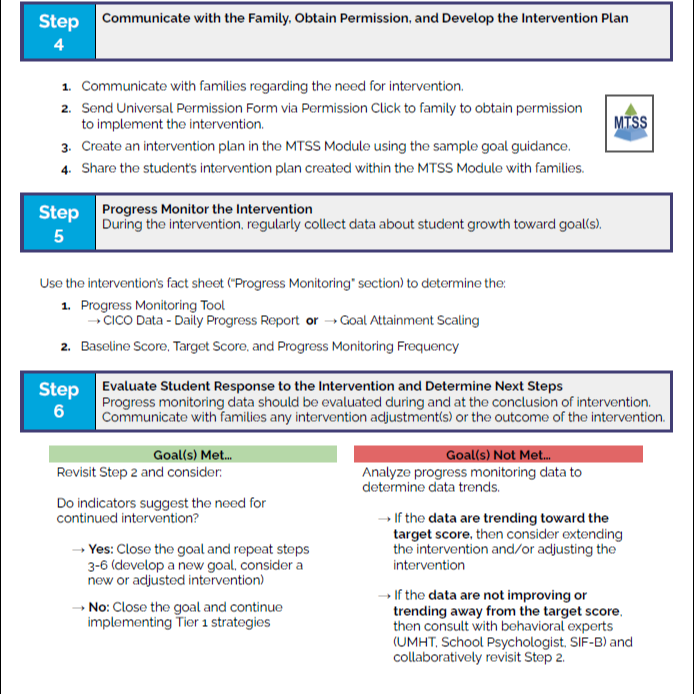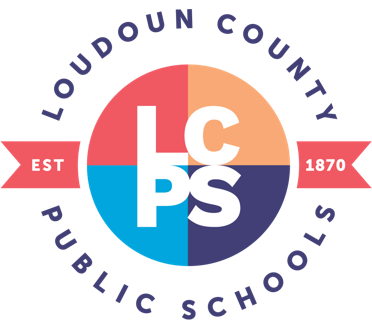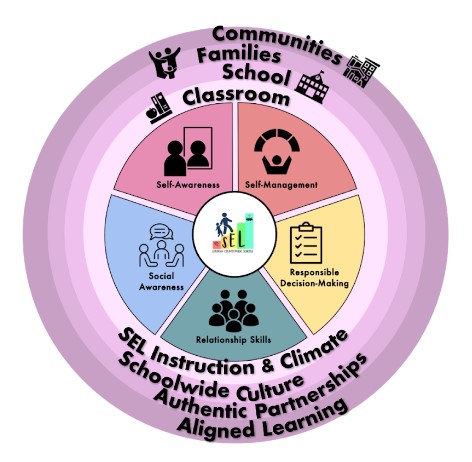Social-Emotional Learning (SEL)
Dr. Lindsay Orme, SEL Coordinator
What is Social-Emotional Learning?
Social-emotional learning (SEL) is how children and adolescents learn and apply knowledge and skills to develop healthy identities and confidence, set and achieve goals, manage feelings, work and play with others, show empathy, make responsible and caring decisions, and solve problems. Through SEL, students are better able to learn and contribute to a positive school environment. These skills are what build foundational knowledge to support the Profile of an LCPS Graduate and career readiness skills.
Benefits of SEL
What are the benefits of implementing social-emotional learning in schools? Research has found that students participating in evidence-based SEL programs have:
Student Gains
Social-emotional skills
Improved attitudes about self, others, and school
Positive classroom behavior
Academic performance in reading and math (11 percentile-point gain)
Reduced Risks of Failure
Conduct problems
Emotional distress
What is Second Step SEL?
Adopted by LCPS in 2019, the Second Step® program is a universal, evidence-based social-emotional learning curriculum taught by classroom teachers of students in kindergarten through eighth grade. Students learn and practice critical social-emotional and executive functioning skills that support student success in school while preparing them for everyday life. Second Step includes four teacher-led units, each with five to eight interactive lessons. Family communications accompany each Second Step lesson, providing lesson summaries and prompts to reinforce the learning at home.
The following units are covered in the Second Step curriculum:
Early Learning (Pre-K)
Skills for Learning
Empathy
Emotion Management
Friendship Skills and Problem-Solving
Full Scope and Sequence and Program Overview
Elementary (Kindergarten - Grade 5)
Growth Mindset and Goal-Setting
Emotion Management
Empathy and Kindness
Problem-Solving
2025-2026 LCPS Elementary Scope & Sequence
Middle School (Grade 6-8)
Mindsets and Goals
Developing a Positive Sense of Self
Thoughts, Emotions, and Decisions
Managing Relationships and Social Conflict
2025-2026 LCPS Middle School Scope & Sequence
Second Step SEL is implemented PreK-8 in all elementary schools and middle schools.
To learn more about the Second Step curriculum, view the Scope & Sequence and visit Secondstep.org.
View Second Step Elementary Sample Lessons and Middle School Sample Lessons
High School SEL
LCPS has not adopted Second Step or other curriculums to teach SEL in high schools, yet there are many
ways schools are addressing social-emotional learning and mental wellness through school-wide campaigns
and classroom lessons, including: School Counseling Lessons and Advisory Lessons; Sources of Strength
and other student leadership groups; and Positive Experiences in Educational Relationships (PEER).
Family Curriculum Access
Families have access to viewing all lessons and family engagement materials in the Second Step Elementary and Second Step Middle School curriculums through their own Second Step account. Create your Second Step account by visiting secondstep.org and entering your school access code. For more information about your school's code, please contact your school administration. (Directions: How to Create a Second Step Account)
The LCPS SEL/Mental Health Decision Tree defines the decision-making process for
Evaluating the implementation of Tier 1 behavioral strategies
Aligning supports with identified student needs (in collaboration with members of the Unified Mental Health Team)
Selecting and implementing appropriate tiered levels of support, to include evidence-based interventions (UMHT)
Informing families of the need for intervention
Progress monitoring the intervention
Evaluating student response to the implemented intervention



